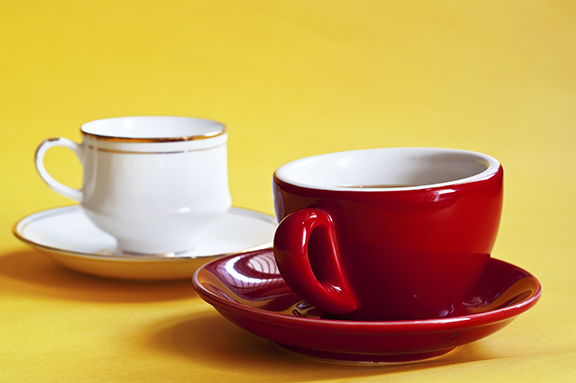With younger consumers turning away from coffee in a search for healthier beverages, many are attracted to coffee tea drinks – a hybrid concept that gives them the best of both worlds – coffee boosting the caffeine content of a tea drink, while tea provides healthier antioxidants.
In much of the world, coffees and teas are regarded as mutual exclusive. The trend of combining the two into a single hot beverage is a relatively new development in Western mainstream markets, but it’s a trend that seems to be breaking out in the specialty tea channel across North America.
Crossing distinct and unconnected foods to create hybrids and fusion foods is a trend that has existed for many years – a globalization of tastes to go along with our world’s increasingly migrant population. Chinese food has long shown an ability to adapt to its surroundings – with different variations arising in every country where it merges with local cuisine. Pizza may be thought of as Italian food, but the mutations that crop up in the local cuisine of whatever country it appears in – make the food vastly different from market to market. But the hybrid tendency took much longer to catch fire in the hot beverage market.
A coffee tea drink known as Yuan Yang is an established and popular beverage choice in the Asia-Pacific region. Tea drinking has historically been the dominant form of hot beverage consumption in the region, but in more recent times, coffee has been introduced and – like many behaviours that are perceived as indicators of western sophistication – grew rapidly in popularity. However, the strong, bitter taste gave rise to the practice of diluting it with gentler and more familiar-tasting tea. The practice became so common that even global brands like Lipton launched coffee tea drinks in the Asian Pacific market. And many variations grew out of that, with coffee flavours being added to tea beverages in the form of additives like coffee jellies. Like bubble-tea, this style of drink has grown popular in the region and has started appearing wherever there are sizable Asian populations in North America.
Coffee tea drinks have also earned a small following in South Africa. Their popular Rooibos or redbush tea is caffeine-free and claims a very high antioxidant content. Taking a cue from the coffee market, ground rooibos started appearing as ‘red espresso.’ Combining it with coffee, gives it an energy kick and it has gained quite a following as a coffee tea hybrid.
Coffee is also being mixed with tea to create “slimming” and fat burning beverages. These often use green coffee extract which contains chlorogenic acid, and has a reputation for ‘thermogenic’ properties. This cocktail is routinely mixed with an array of metabolism boosting herbal ingredients.
While coffee tea drinks represent a fairly small niche in the tea category, it is a novel concept with enough of an existing following that it’s likely to keep growing.








